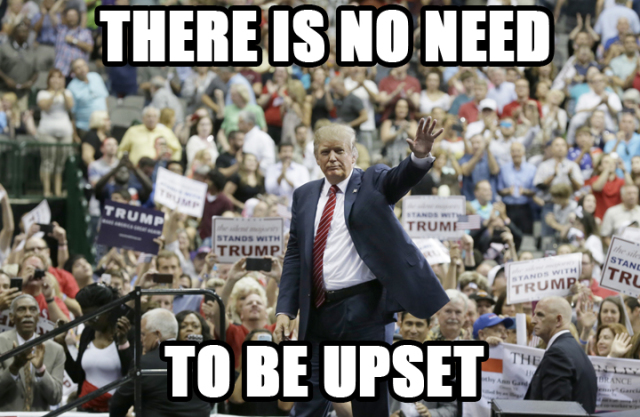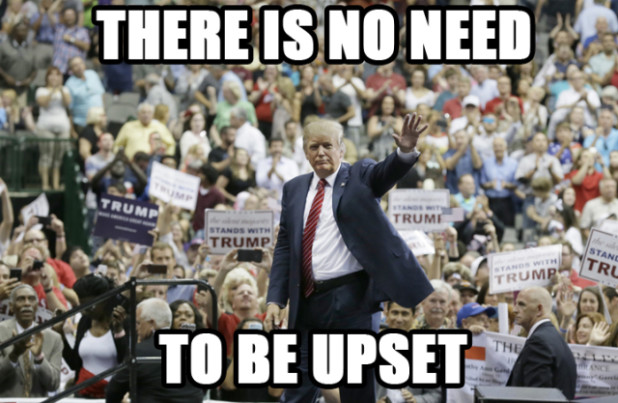Atlantic Centurion
July 15, 2016
A recent article in the (((New York Times))), titled “For Whites Sensing Decline, Donald Trump Unleashes Words of Resistance,” takes on the intersection of the Trump campaign and the rise of the alt-right. I’ve written on the Trump-fueled growth of White identity politics before (1, 2, 3, 4) in addition to being quoted in the (((Times))) on winning the meme war, so I always feel pretty damn comfy when this stuff comes across my newsfeed from a non-movement source. While these articles aim to spook normies by quoting the Hitleresque villains of progressive folklore and providing their odious perspectives with minimal spin, they also spread our propaganda. Like many articles of this genre, it is inadvertently honest about demographic issues being central to “White resentment,”even if the authors believe the resentment felt by these goyish kulaks is unjustified. The article still directly exposes the audience to facts of demography, like how “in states like Texas and California, and in hundreds of cities and counties around the country, that [White-minority] future has arrived.”
Direct quotations from movement people making it into the press—meant by the author to capture ideas purportedly so rancid that no commentary is needed to dissuade the goyim from from rejecting them—are for us a metapolitical victory. The author quotes Richard Spencer of the National Policy Institute, American Renaissance‘s Jared Taylor, and Daily Stormer fuhrer-in-chief Andrew Anglin. He also references Pat Buchanan, paleoconservative author, commentator, and former presidential candidate.
“The discussion that White Americans never want to have is this question of identity — who are we? He is bringing identity politics for White people into the public sphere in a way no one has” (Spencer). “Ordinary White people don’t want the neighborhood to turn Mexican. They just realize that large numbers of Mexicans will change the neighborhood in ways they don’t like.”(Taylor). “Trump is willing to say what most Americans think: It’s time to deport these people. He is also willing to call them out as criminal rapists, murderers and drug dealers” (Anglin). “It is the changes that are taking place that have created the national constituency for Donald Trump” (Buchanan).
Horrible, perhaps to a politically correct audience, but factual. It is true that Whites largely remain the only identity group in America without well-funded and overt ethnic lobbies, tribal organizations, or political watchdogs, and that our elites do not want to deal with questions of having a positive identity (as opposed to the self-hating, guilt-tripping, privilege-signaling one). It is true that White people do not like living with the third world, as evidenced by the widely condemned socio-geographic phenomenon of White flight. It is true that those who violate our border are criminals who by law should be deported and that furthermore rapists, murderers, and drug dealers and smugglers have entered the country from Mexico. And it is true that without mass immigration there would not be the swell of nativism that is propelling the Trump campaign.
There’s no dispute that any of these things are happening. The article enhances the case made by these quotes with straightforward snippets of reality. “Demographers began to speak of a not-too-distant future when non-Hispanic whites would be a minority of the American population,” writes the author, adding that “President Obama’s election [was] made possible in part by the rising strength of nonwhite voters.” One group is being replaced by another. The country is slipping away from its European foundations. And so what?
The (((Times))) reader is not supposed to care. Political unrest among the reactionary peasantry is something to be looked at in a detached way. Local identities are already understood to be illiberal and bigoted chauvinism. The views of such people need not be set up and knocked down, as one might suspect the writing of the opposition to do—they are a priori wrong and low status. We are just given quotes from the enemies of progress and their premises behind them. And the premises are true—it’s just that the conclusion isn’t kosher and so it has to be rejected.
The purpose of these kinds of pieces, which neither attempt to land hits nor deconstruct rivalrous arguments, is to understand why so many Whites resist their dekulakization. Who are these retrograde bigots that don’t like the current year and why are they obstinate? The author doesn’t quote people from our movement in full because he empathizes with us or sees our concerns as valid. For him this is an academic exercise and the topic of future dissertations: Why did White Americans resist diversity in the 2010s?
But it also shows our propaganda to hundreds of thousands of people, if not millions. For movement that largely exists online, that’s a pretty big deal.

